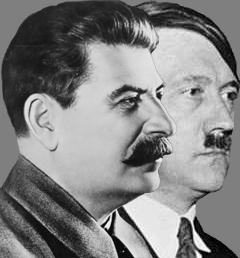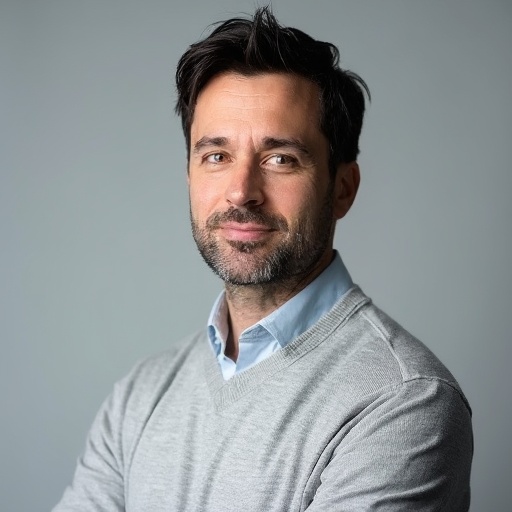Genghis Khan: The Unifier of the Mongol Tribes

Genghis Khan, originally named Temujin, is remembered as a formidable Mongolian ruler who unified the scattered nomadic tribes of the Mongolian plateau in the early 13th century. His empire became the largest contiguous empire in history, spanning from Eastern Europe across Asia. Known for employing ruthless military strategies, Genghis Khan often used psychological warfare to terrify his enemies into submission. Despite his brutal tactics, he implemented a meritocratic system, rewarding loyalty and skill over noble birth. This system allowed for a more efficient administration and contributed to the success of his empire. His conquests facilitated trade along the Silk Road, paving the way for cultural exchanges that left a lasting impact on the regions under his rule. While his campaigns caused the deaths of millions, Genghis Khan’s legacy also includes laying the foundations for modern nations in Central Asia.
Joseph Stalin: The Architect of Soviet Power

Joseph Stalin’s reign over the Soviet Union from the mid-1920s until his death in 1953 was a period of drastic transformation marked by rapid industrialization and severe repression. Through his Five-Year Plans, Stalin turned the Soviet Union into a significant world power, achieving notable economic growth. However, this came at a high human cost; millions suffered from famine, forced labor, and political purges. The Great Famine of 1932-1933 alone claimed the lives of an estimated 3 to 7 million people. Stalin’s policies also established a totalitarian state where dissent was brutally suppressed. Despite the immense suffering caused by his regime, Stalin’s legacy includes the USSR’s emergence as a superpower following World War II, an achievement that altered the global balance of power.
Mao Zedong: The Father of Modern China

Mao Zedong, the founding father of the People’s Republic of China, is a complex figure whose radical reforms transformed China into a communist nation. His Great Leap Forward aimed to rapidly industrialize the country but resulted in one of the deadliest famines in history, with an estimated death toll ranging from 15 to 45 million. Despite these catastrophic failures, Mao’s policies laid the groundwork for China’s future economic reforms. The Cultural Revolution further consolidated his control by targeting intellectuals and traditional cultural practices, leading to widespread chaos and suffering. While Mao is credited with unifying China and laying the foundation for its future growth, his legacy is marred by the brutality of his methods and the immense human suffering they caused.
Adolf Hitler: The Führer Who Reshaped Germany

Adolf Hitler’s regime from 1933 to 1945 reshaped Germany through aggressive nationalism and militarization. Under his leadership, Germany transformed into a totalitarian state characterized by extreme anti-Semitism and the implementation of genocidal practices during the Holocaust, where six million Jews were murdered. Hitler’s economic policies initially reduced unemployment and revitalized the German economy, but they were heavily reliant on militarization and expansionism, ultimately leading to World War II. His aggressive expansionist policies resulted in the deaths of tens of millions and left Europe in ruins. Hitler’s impact on Germany and the world serves as a stark reminder of the dangers posed by unchecked power and extremist ideology.
Pol Pot: The Khmer Rouge’s Brutal Reign

Pol Pot, the leader of the Khmer Rouge, ruled Cambodia from 1975 to 1979 with a vision to create an agrarian socialist society. His regime was marked by extreme brutality, leading to the deaths of approximately 1.7 million people through starvation, forced labor, and executions. The Khmer Rouge aimed to eliminate all traces of modernity, resulting in the destruction of cities and the forced relocation of urban populations to rural areas. Despite the catastrophic human toll, Pol Pot’s vision for a classless society left a lasting impact on Cambodia’s political landscape. The horrors of his regime continue to shape the nation’s history and identity.
Kim Il-sung: The Cult of Personality in North Korea

Kim Il-sung, the founder of North Korea, established a totalitarian regime characterized by a pervasive cult of personality. His leadership from 1948 until his death in 1994 involved the suppression of dissent and the creation of a state-controlled economy. While Kim’s policies led to significant industrial growth, they also resulted in widespread famine in the 1990s, with death estimates ranging from 240,000 to 3.5 million. His legacy continues through his family’s dynastic rule, with his son and grandson maintaining the oppressive regime. North Korea remains one of the most isolated and repressive countries, with its people living under constant surveillance and propaganda.
Benito Mussolini: The Father of Fascism

Benito Mussolini, the Italian dictator from 1922 to 1943, played a crucial role in the development of fascism. His regime emphasized nationalism and militarism, leading to the expansion of Italy’s territories. Mussolini’s policies brought significant social and economic changes, but they were often accompanied by violence and repression. His alliance with Adolf Hitler during World War II ultimately led to Italy’s downfall. Mussolini’s legacy serves as a cautionary tale about the perils of authoritarianism and the dangers of charismatic leadership. The impact of his rule continues to serve as a reminder of the fragility of democratic institutions.
Francisco Franco: The Spanish Dictator

Francisco Franco ruled Spain from 1939 until his death in 1975, following a brutal civil war. His regime was characterized by authoritarianism and repression, with thousands executed or imprisoned for opposing his rule. Franco’s policies aimed to modernize Spain’s economy, leading to significant growth in the 1960s. However, his legacy is marred by human rights abuses and the suppression of regional identities. The transition to democracy following Franco’s death has been complicated by the lingering effects of his dictatorship, including unresolved issues related to regional autonomy and historical memory.
Saddam Hussein: The Iron Fist of Iraq

Saddam Hussein ruled Iraq from 1979 until his ousting in 2003, using brutal tactics to maintain power. His regime was marked by widespread human rights abuses, including the use of chemical weapons against the Kurdish population. Despite his oppressive rule, Hussein’s policies led to economic growth and modernization in certain sectors. However, his aggressive foreign policy, including the invasion of Kuwait, resulted in devastating wars and international isolation. Hussein’s legacy is a complex blend of development and destruction, leaving Iraq in turmoil after his fall. His rule is a stark reminder of the consequences of authoritarian governance.
Vladimir Putin: The Modern Autocrat

Vladimir Putin has been a dominant figure in Russian politics since 1999, serving as both president and prime minister. His administration is characterized by a consolidation of power, suppression of dissent, and aggressive foreign policy. While Putin’s economic policies have led to growth, they are often accompanied by corruption and human rights violations. His actions in Ukraine and Syria have drawn international condemnation and sanctions. Putin’s legacy is still unfolding, as he continues to shape Russia’s role on the global stage. His leadership style and policies have far-reaching implications for both Russia and the international community.


